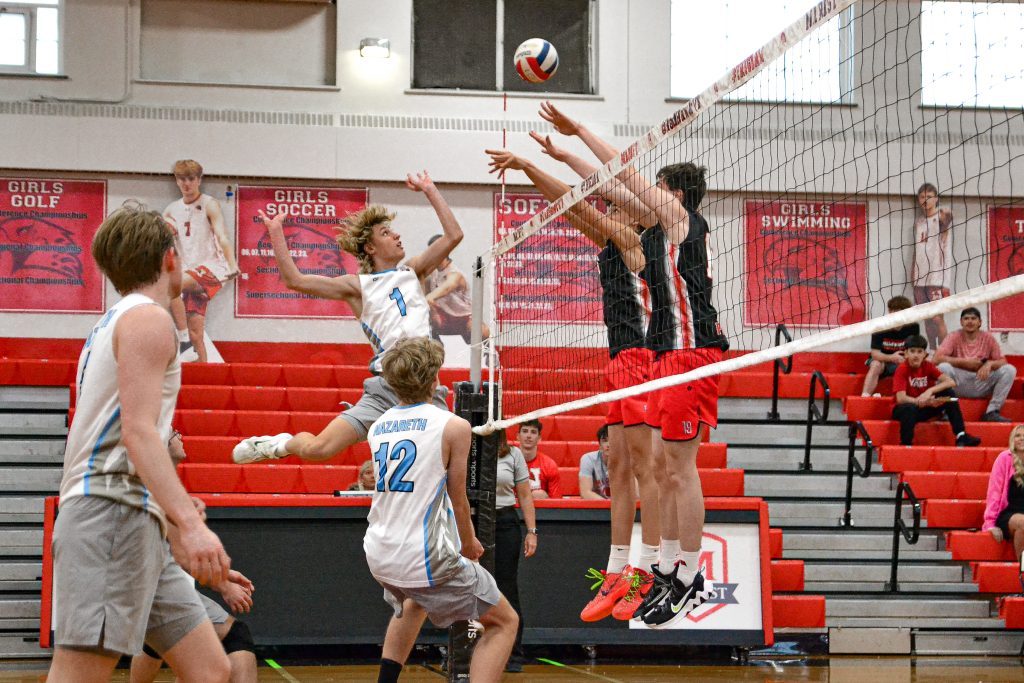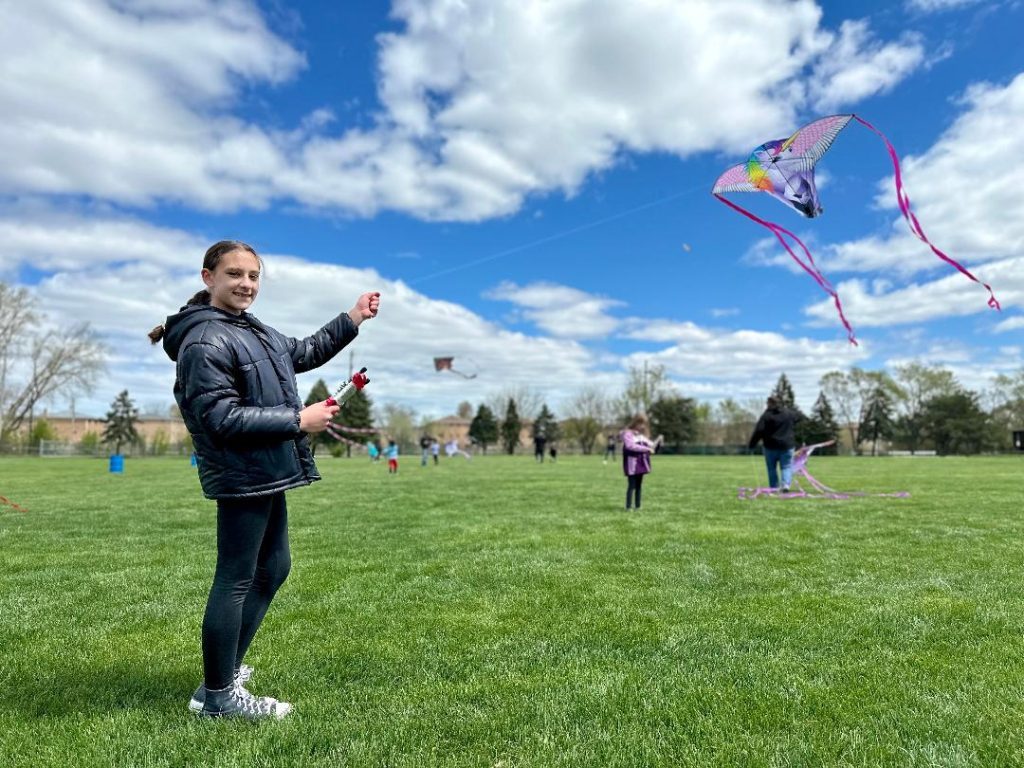
From Better Government Association: Biden’s infrastructure push challenges Illinois’ car-centric approach
By DANIEL C. VOCK
Better Government Association
If President Joe Biden gets his infrastructure package through Congress, it could prompt Illinois and other states to reconsider how much of its transportation networks are built for cars and trucks.
Biden’s $2.3 trillion American Jobs Plan is far from becoming law, and its details remain in flux. But much of the Democratic president’s vision runs counter to decades of transportation officials’ car-centric thinking by emphasizing public transit, cutting pollution and helping modernize existing neighborhoods over providing incentives for suburban sprawl.
“It’s been decades since President [Dwight] Eisenhower created the interstate highway system, so we have decades to overcome in terms of transit [spending] versus highway spending. That’s because we have a lot of catchup [to do],” said Jacky Grimshaw, the vice president for governmental affairs at the Center for Neighborhood Technology. “But we [in Illinois] are on the road to doing that catchup.”
Still, the state’s focus remains overwhelmingly on preserving — and in some cases expanding — its road networks.
One telling example is the $45 billion public works bill Illinois Gov. JB Pritzker signed three years ago. Some activists praised the Rebuild Illinois capital plan because it provides more reliable state funding for public transit and sets aside funds for bicycles and walking routes. But more than half of the plan’s spending is for roads and highways. Roads get $25.3 billion under the state plan compared to, for example, $4.7 billion for mass transit.
Rebuild Illinois depends on $9 billion in federal transportation funding that regularly flows to the states from the U.S. government. Biden’s American Jobs Plan would come on top of that.
But the federal government and the state of Illinois need each other to make major changes in transportation policy. The federal government supplies most of the money for big highway projects, but state governments determine how that money is spent. Both are instrumental in other facets of transportation, too, whether it’s paying for new “L” lines in Chicago, building bike paths in the suburbs or adding Amtrak services downstate.
Even if Biden gets a bill through Congress, its success will rest with states such as Illinois. The Illinois Department of Transportation, after all, controls 16,000 miles of state highways. IDOT and the Illinois State Toll Highway Authority together control nearly 2,000 miles of interstates, the third biggest interstate network of any state in the country.
“This is the beginning of the discussion of fundamentally rethinking what we invest in,” said Kevin Brubaker, the deputy director of the Environmental Law & Policy Center. “Biden is suggesting that the era of just building more highways is over. It’s time to establish societal goals — mobility, fairness, addressing climate change — and then have our investments follow those goals. [We can’t] just throw more money at highways.”
Cars and trucks are now the biggest source of greenhouse gas pollution in the United States. They produce even more of the harmful gases than the electric power industry, which has been at the center of debates in Springfield this year over its carbon dioxide emissions.
Christian Mitchell, Pritzker’s deputy governor who oversees public safety, infrastructure, energy and the environment, said the Rebuild Illinois program helped shift Illinois’ infrastructure spending. It raised the state’s gas taxes for the first time since 1990 to pay for improving roads, improving transit services and building more bike lanes and assets for pedestrians. The Pritzker administration also has encouraged people to buy and drive electric vehicles, especially those made in Illinois.
“We got a head start on a bunch of this stuff,” Mitchell said. “Frankly, the American Jobs Plan would accelerate that work and expand it to additional opportunities.”
But some advocates in Illinois still see a disconnect between the president’s goals and the state’s transportation priorities.
“From our perspective, IDOT has not yet shown they’re genuinely interested in prioritizing climate and racial equity in their build-out of the transportation network across the state,” said Kyle Whitehead, a spokesperson for the Active Transportation Alliance, a Chicago-based advocacy group for pedestrians and cyclists.
Whitehead has a long list of frustrations, both large and small, with IDOT and other large transportation agencies in the state. Sometimes it’s outrage over a new highway project. But there also are plenty of irritations over the difficulty of installing sidewalks, bus routes or bike lanes on state-owned roads.
“One of the benefits of the federal package prioritizing equity and climate is it could help bring IDOT along, and the region along, in terms of how we’re looking at transportation and the impacts that it has on society at large,” Whitehead said.
What’s more, Brubaker said, it is hard to determine how well IDOT is prepared to meet the goals of the Biden infrastructure push because the state agency’s criteria for choosing projects are a “black box.”
IDOT’s six-year plan states it uses a “data-driven” approach to measure how projects further its goals of improving the economy, livability, mobility, resiliency and stewardship. But it doesn’t reveal what data it uses to judge those projects, Brubaker said.
“Whether the state is well prepared to pivot to transportation investments that address climate change, racial equity and other goals of the Biden administration is an unknown,” he said.
That could change soon, though. The legislature just passed a bill this spring that would require IDOT and transit officials in the Chicago area to evaluate new projects on performance metrics starting next year. The bill still needs Pritzker’s signature.
Paul Wappel, a spokesperson for IDOT, said the agency “looks forward to working with the Illinois delegation and other stakeholders on a federal infrastructure plan that advances long-term, sustained investment while simultaneously supporting users across all modes and diverse populations, building equity, respecting the environment and encouraging innovation.”
Last month, IDOT officials said the agency planned to spend $2.58 billion on roadway expansions over the next six years, which is one-sixth of its overall spending. Among the projects are rebuilding Interstate 190 near O’Hare International Airport, replacing the Interstate 270 bridge over the Mississippi River near St. Louis and widening Interstate 57 in southern Illinois.
Two-thirds of IDOT’s planned spending would be used for maintaining existing roads and bridges. Another 8% would go toward “safety and modernization,” and the remaining 9% would pay for support.
“Even in a pandemic — especially in a pandemic — our transportation systems connect the lives of our residents and our communities,” Pritzker said while unveiling plans to improve more than 3,300 miles of road last July. “Our roads and bridges deliver Illinoisans to work and home again, to school, to the pharmacy, to the doctor’s office.”
Kate Lowe, a professor of urban planning and policy at the University of Illinois at Chicago, said she hasn’t seen major changes in how the state designs transportation projects, despite all the talk at the state and federal level about traffic safety, racial equity and non-automobile forms of transportation.
“We [in Illinois] still have projects in the pipeline that don’t center those goals and still prioritize automobile speed,” she said.
Lowe pointed to the seemingly endless reconstruction of the Jane Byrne Interchange in Chicago, where the Eisenhower Expressway meets with the Kennedy and Dan Ryan expressways. The work started in 2013 and is still ongoing, and the result will be that “it will save cars a few seconds,” Lowe said.
Similarly, Lowe said plans by IDOT and the Chicago Department of Transportation to rebuild North Lake Shore Drive are focused too much on catering to rush hour drivers who are already well served by infrastructure in the Chicago region.
The average commute time each way for Chicago-area drivers is 29 minutes, while it is 43 minutes for “L” riders and 44 minutes for those taking buses.
“Illinois is losing population, so I don’t think we have much of a case for expanding automobile infrastructure of any type,” Lowe said. “And we know more lanes attract more cars, and you end up with congestion.”
Wappel, the IDOT spokesperson, said road construction projects improve safety and reduce air pollution from stalled traffic. They don’t just improve travel times.
The Jane Byrne Interchange, for example, is considered one of the biggest freight bottlenecks in the nation, he said. It was built six decades ago, and sections still had ramps with single lanes with no shoulders. Wappel also said the North Lake Shore Drive project is still in the planning phase, and all options have a transit component.
Erin Aleman, executive director for the Chicago Metropolitan Agency for Planning, said communities in the Chicago area are running out of room to keep expanding their roadways.
“There are some strategic needs to enhance the roadway system for safety reasons,” said Aleman, whose agency coordinates federal transportation spending in the region. “But we’re landlocked.”
Still, she said she’s seen authorities come up with clever ways to use existing infrastructure.
Pace, the suburban bus agency, now runs buses on the shoulders of interstate highways when the roads are congested, she noted. Future projects could include improving suburban rail crossings so trains don’t delay traffic and add to local air pollution or enacting congestion pricing on Chicago-area toll roads to encourage drivers to travel outside rush hour, Aleman said.
The Regional Transportation Authority, which oversees transit operators in the Chicago area, is shifting its focus from finding state money to pay for overdue repairs to bigger societal goals, said Leanne Redden, the agency’s executive director.
There are many reasons for the shift, including the inequities that were highlighted during the COVID-19 pandemic and new state funding. But Biden’s infrastructure plan played a role, too.
“The environment, equity and accessibility were always on our minds, but now it’s coming to the forefront,” Redden said. “It’s encouraging and exciting to see the federal government is now also talking about those as a formal part of their agenda. The benefits and the impact of transit systems fit squarely in that, and we want to be ready to use as many of those dollars as we can.”
The pandemic forced some area transit agencies to quickly change how they worked. Metra ran fewer trains, and Pace began running fewer buses to Metra stations and more buses to UPS and Amazon facilities to ferry people to their jobs there. The Chicago Transit Authority, though, was one of the only transit agencies in the nation that did not reduce bus or train services during the pandemic.
If there’s one project advocates hold up as a model for how Biden’s infrastructure proposal could change lives in Illinois, it’s the effort to extend the CTA’s Red Line on the far South Side of Chicago.
The Red Line now ends at 95th Street, at the southern end of the Dan Ryan and 4 miles from the city’s southern border. The 95th Street stop is at the edge of Roseland, a Chicago neighborhood that is 96% Black and often referred to by urban planners as a transit desert.
For Andrea D. Reed, the executive director of the Greater Roseland Chamber of Commerce, the situation limits residents’ options for jobs in other parts of the city and makes it harder for Roseland to attract businesses.
Residents who live in Altgeld Gardens at the very southern edge of the city, for instance, must travel an hour and take three buses to shop at a nearby Walmart. By car, it takes less than 10 minutes. A Red Line extension could solve that problem — and many more.
In December, the federal government gave the CTA the go-ahead to plan the Red Line extension, which is expected to cost $2.3 billion. The federal government could provide up to half of the funding, but the CTA will have to find local money to match. Chicago officials hope Biden’s infrastructure bill, if it passes, could make it easier to pay for the Red Line extension.
The project could be a boon not only for residents’ transportation needs but also for any construction jobs, Reed said.
“We need the Red Line to be done,” she said. “It’s not just about the train. It’s about how it can improve the quality of life for residents in the area.”
This story was produced by the Better Government Association, a nonprofit news organization based in Chicago, and distributed by Capitol News Illinois, a nonprofit news organization covering state government and funded by the Illinois Press Foundation and the Robert R. McCormick Foundation.
Local News

Mother’s Day is truly a day to be celebrated
Spread the love. Peggy Zabicki Your correspondent in West Lawn 3633 W. 60th Place • (773) 504-9327 . Mother’s Day happens on Sunday, May 12. If this isn’t something to celebrate, I don’t know what is. Motherhood means new life, new beginnings, new possibilities. Even if you won’t be seeing your mom, you can still…

Saint Xavier men’s volleyball finishes historic season in nation’s top 4
Spread the loveBy Jeff Vorva Correspondent The Saint Xavier men’s volleyball team made history by advancing to the semifinals of the NAIA Men’s Volleyball National Championship. But the Cougars fell to eventual national champion Georgetown (Kentucky), 25-21, 25-23, 22-25, 21-25, 15-10, on May 3 at Alliant Energy PowerHouse in Cedar Rapids, Iowa. Although there was…

St. Francis first baseman Nate Maliska earns conference POW honors
Spread the loveBy Mike Walsh Correspondent The University of St. Francis sophomore first baseman Nate Maliska was chosen the Chicagoland Collegiate Athletic Conference’s Player of the Week in baseball for April 7. In helping the Saints to four wins that week, Maliska went 9-for-15 (.600) with eight RBI and seven runs scored. The St. Laurence…
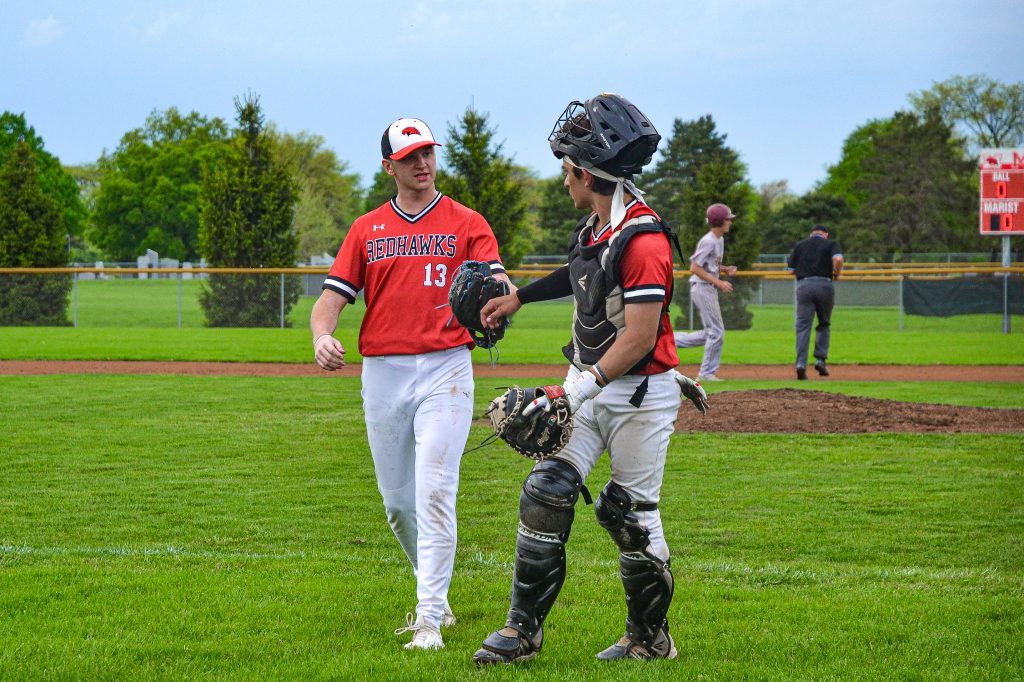
Baseball | Marist claws way back to .500
Spread the loveBy Xavier Sanchez Correspondent This season has thus far not been what Marist had expected, but the RedHawks came into this week at .500. Marist was 2-8 after 10 games this season, with three of those first eight losses coming via shutout. But the RedHawks turned things around with a stretch of eight…
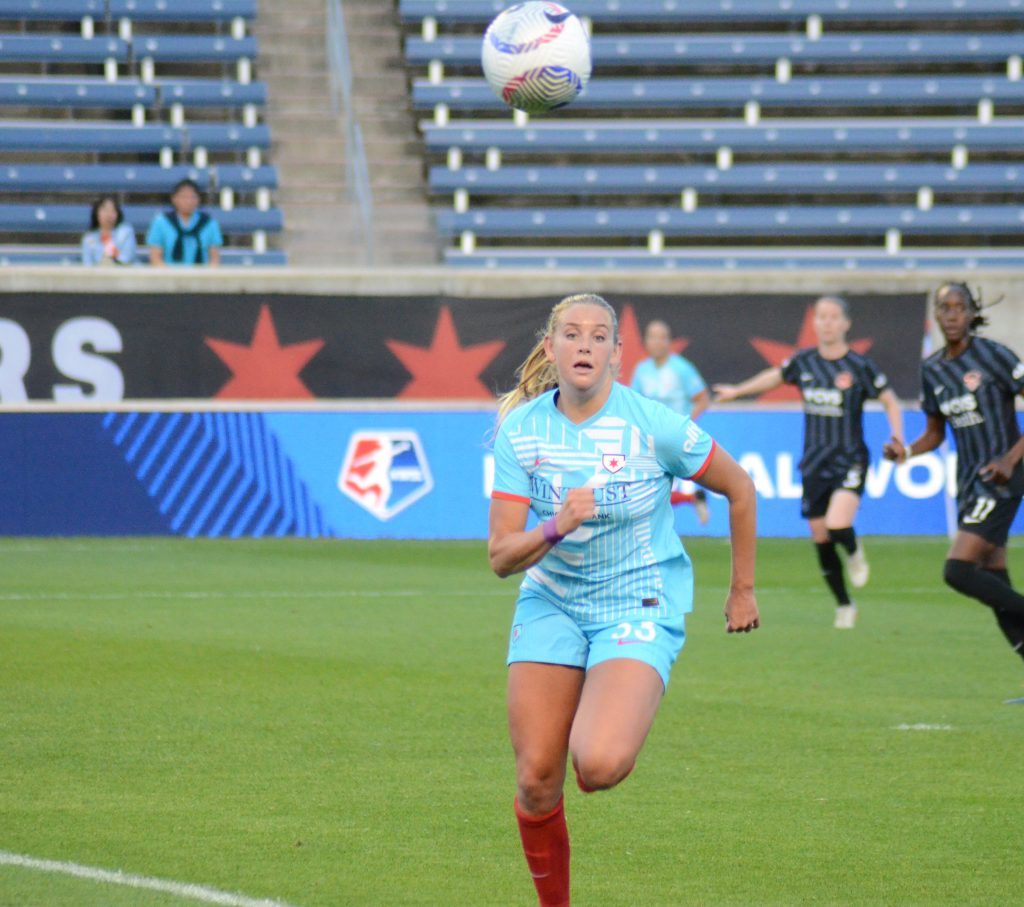
Red Stars fall to Spirit for third loss in past four matches
Spread the loveBy Jeff Vorva Correspondent After enjoying one of their best starts in franchise history, the Chicago Red Stars have slid to the middle of the NWSL standings, with the latest setback being a 4-2 loss to Washington at SeatGeek Stadium. The Stars (3-3-1) entered this week having dropped three of their past four…

Red Stars take aim at NWSL attendance record with Wrigley game
Spread the loveBy Jeff Vorva Correspondent The Chicago Red Stars are thinking big when it comes to their upcoming game at Wrigley Field. The team is taking aim at the NWSL record for single-game attendance when it hosts Bay FC at the historic home of the Chicago Cubs on June 8. The record is held…

IHSA announces boys volleyball postseason assignments
Spread the loveBy Jeff Vorva Correspondent Last year, the area sent a pair of boys volleyball teams to state as Lyons finished runner-up to champion Glenbard South and Brother Rice lost in the quarterfinals. This year, both could face each other in the sectional finals. The Lions picked up the second seed and the Crusaders…

Badminton players from Reavis and Lyons going to state
Spread the loveBy Jeff Vorva Correspondent Reavis singles player Dania Amjad finished third in the Bolingbrook Sectional on May 2 to qualify for the IHSA state tournament. The Lyons doubles team of Simone Brown and Mia Graziano finished fourth in the York Sectional to qualify for state. The state finals are May 10-11 at DeKalb…
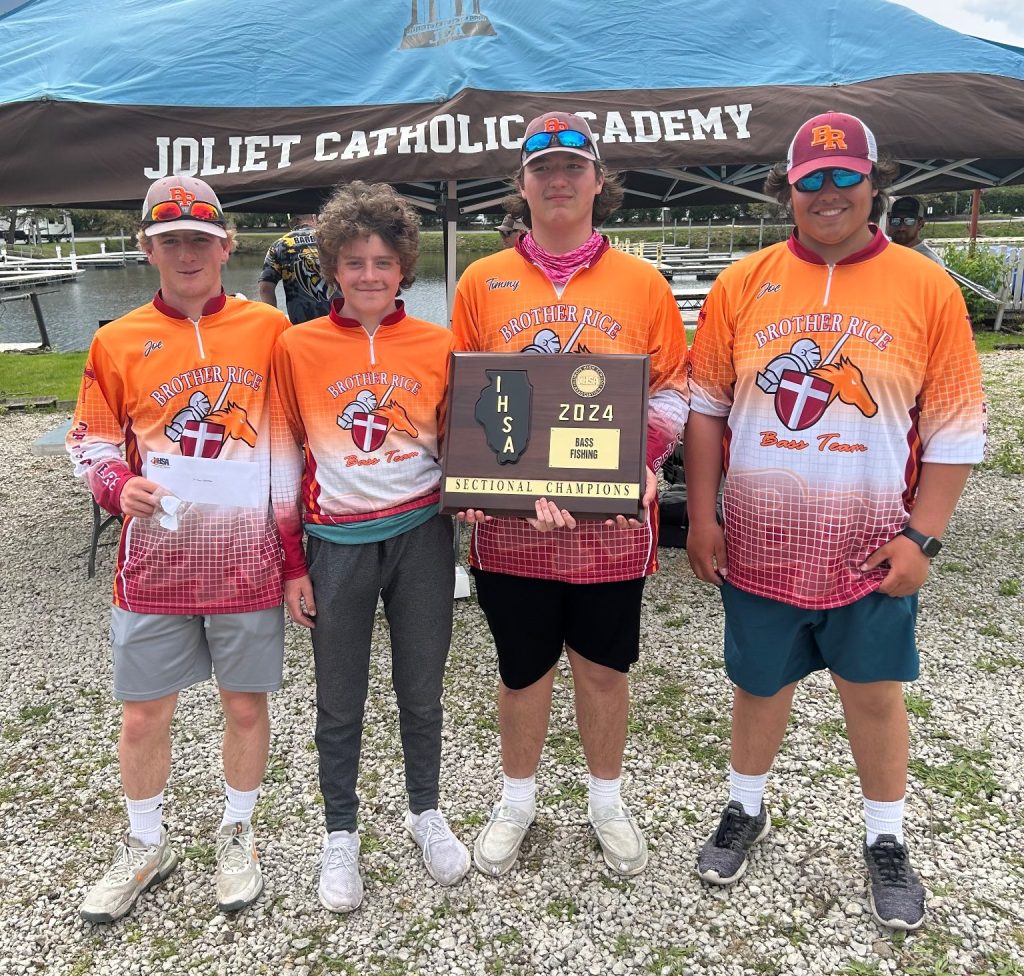
Brother Rice, Sandburg sending boats to bass fishing state tourney
Spread the loveBy Jeff Vorva Correspondent Brother Rice is sending two boats to the IHSA state bass fishing tournament. The Crusaders had first- and third-place finishes at the Des Plaines River Big Basin Marina Sectional on May 2. Sandwiched in between the Brother Rice boats was a group from Sandburg in second place. The Crusaders’…
Neighbors
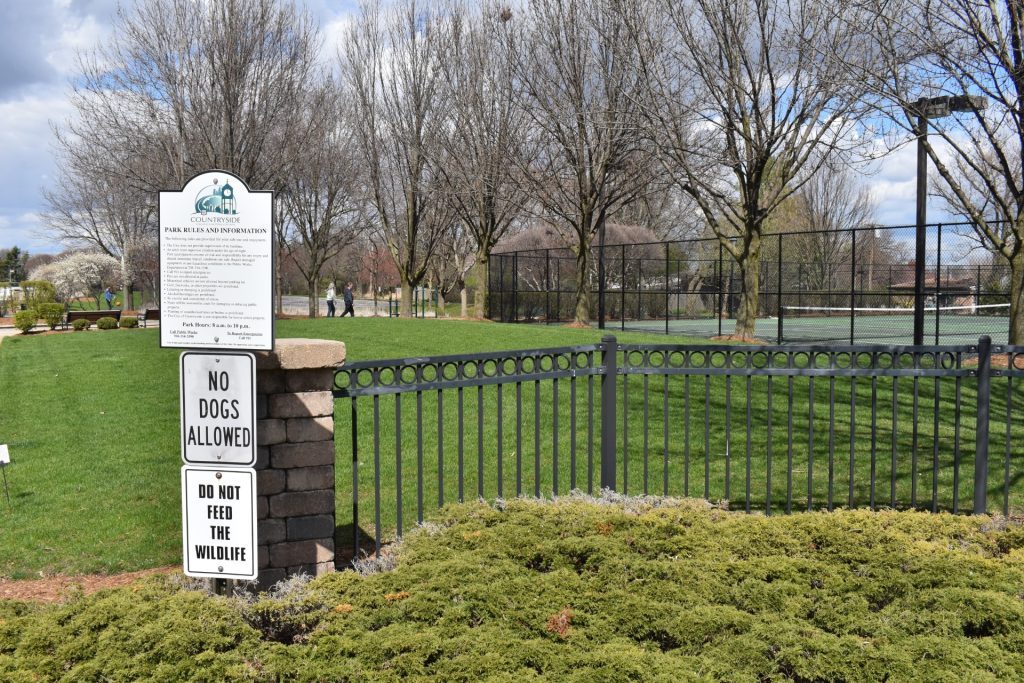
Countryside puts dog park on hold, will require leashes in two parks
Spread the loveBy Steve Metsch The city of Countryside has put on hold building a dog park, but canines and their owners are still in store for a treat. The city council has unanimously approved a plan to permit dogs in City Park and Countryside Park this year. Previously, they were not allowed in the…

Bridgeview approves auto repair shop
Spread the loveMoves up time for May 1 village board meeting By Steve Metsch Bridgeview is getting a new automotive repair shop. The village board at its April 17 matinee meeting approved a special use permit that will allow a repair shop at 9010 S. Beloit Ave. There was no discussion among trustees. The board…
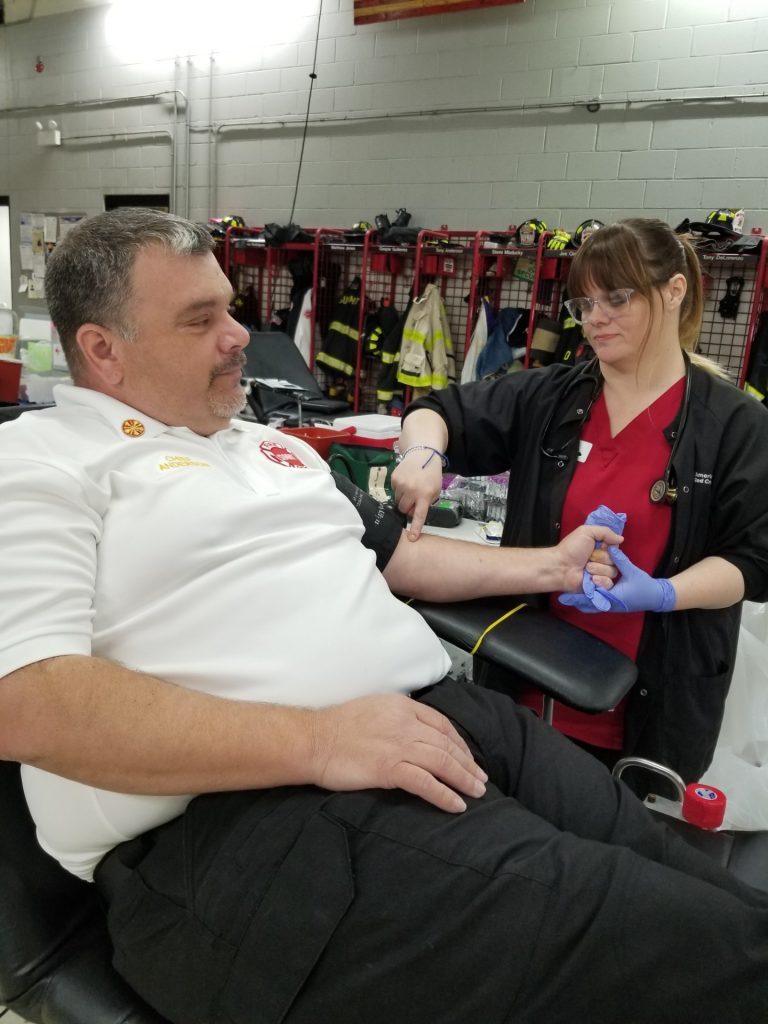
Summit Fire Department blood drive draws a crowd
Spread the loveBy Carol McGowan The Summit Fire Department, along with the Village of Summit, and the Argo Summit Lions Club held a blood drive this past Saturday, and it drew a crowd that even impressed the American Red Cross. It took place from 9 a.m. until 2 p.m. with non-stop donors walking through the…
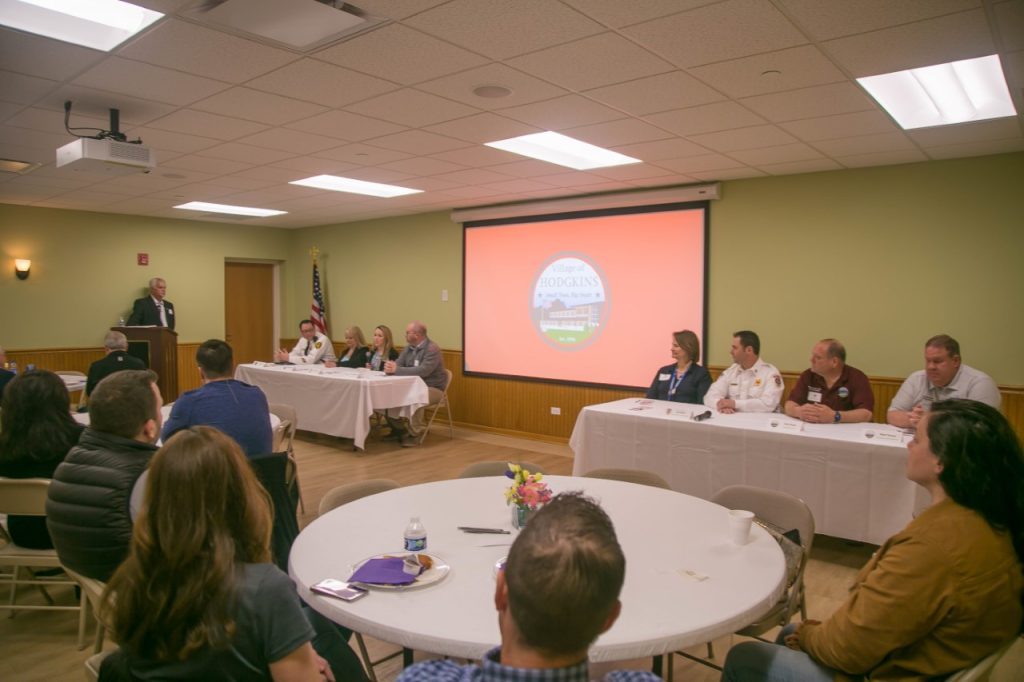
Hodgkins toasts village businesses
Spread the loveBy Carol McGowan Hodgkins Mayor Ernest Millsap and the Board of Trustees celebrated the village’s businesses at its annual Business Appreciation Breakfast on April 10. Over 100 people gathered at the Hodgkins Administration Center for a hearty breakfast hosted by the village. Representatives from many businesses that are located in or that work…
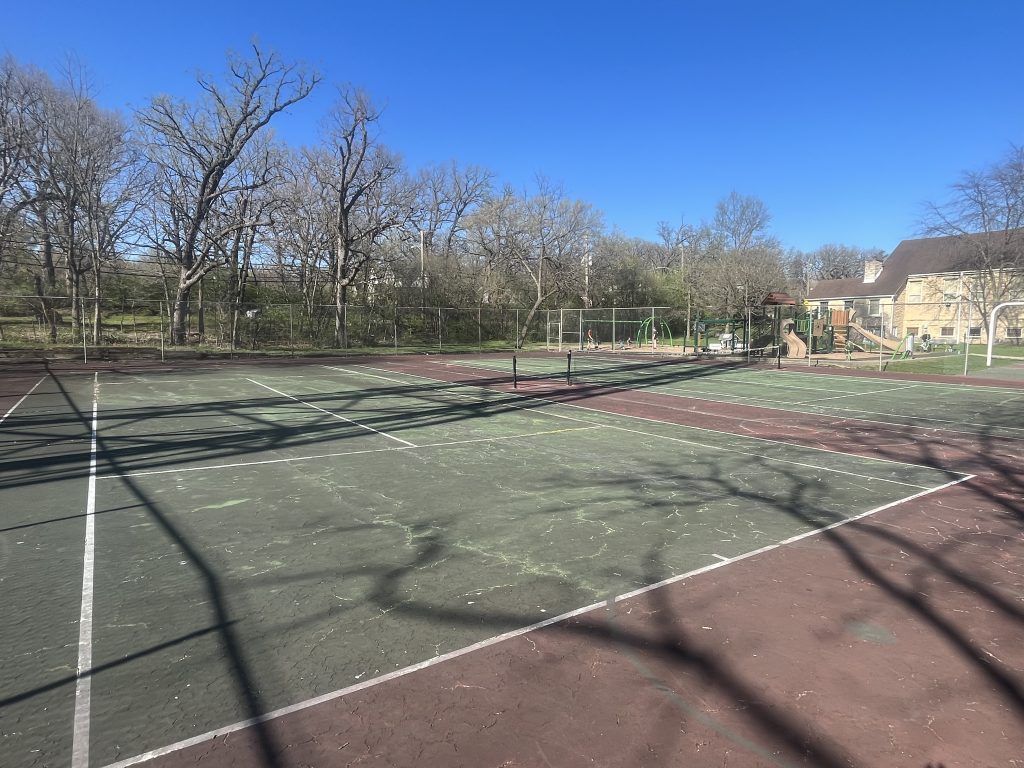
Pickleball courts coming to Palos Park
Spread the loveBy Jeff Vorva There will finally be outdoor pickleball in Palos Park. In a process that went longer than anticipated, the Palos Park Village Council was able give the green light to get a pickleball project started on the Village Green. The council voted April 8 to award the contract to U.S. Tennis…

First Secure Bank to host American Eagle gold coin sale
Spread the loveFrom staff reports First Secure Bank & Trust of Palos Hills announced its annual May sale of 1-ounce and ¼-ounce American Eagle Gold Coins, produced by the U.S. Mint, will take place from 10 a.m.to noon on Saturdays, May 4, May 11, May 18 and May 25. The sale will take place at…

Donate teddy bears to our local police
Spread the love. Peggy Zabicki Your correspondent in West Lawn 3633 W. 60th Place • (773) 504-9327 . Have you ever seen the 1955 movie The Night of the Hunter? The children in this movie show such bravery and acceptance in what life has thrown at them. They have to deal with unimaginable events and sadness. …
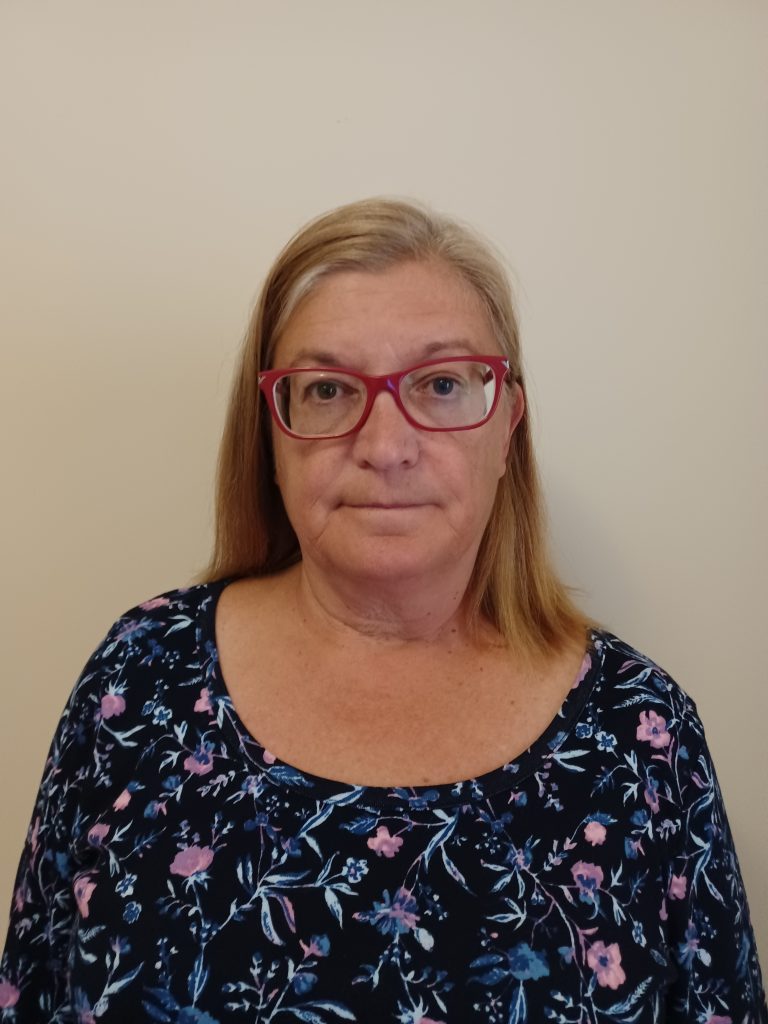
Boy Scouts collecting tattered flags for disposal
Spread the love. By Mary Stanek Your correspondent in Archer Heights and West Elsdon 3808 W. 57th Place • (773) 517-7796 . Goodbye April, hello May. Our American Flag, the symbol of our country, should always be treated with respect. But after bearing Chicago’s brutal winters and hot blazing summers along with being in the…

Oak Lawn trustee says village needs state grocery tax
Spread the loveBy Joe Boyle An Oak Lawn trustee said that Gov. J.B. Pritzker’s proposal to eliminate the state’s grocery tax will be costly for the village. Trustee William “Bud” Stalker (5th), accompanied by Mayor Terry Vorderer, recently returned from a fact-finding trip to Springfield where they learned more about the governor’s proposal to eliminate…






